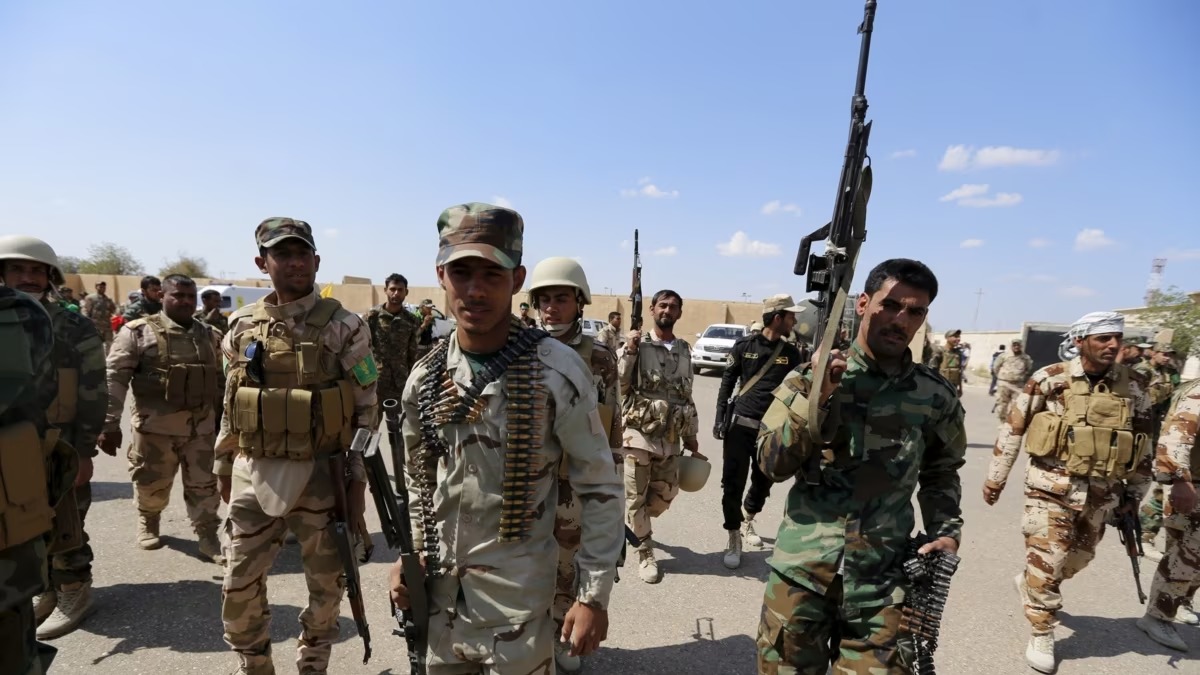In the aftermath of the United States’ retaliatory strikes against sites in Iraq and Syria used by Iranian-backed militias and the Iranian Revolutionary Guard, there are signals from an Iraqi militia official expressing a willingness to de-escalate tensions in the Middle East.
Hussein al-Mosawi, spokesperson for Harakat al-Nujaba, one of the prominent Iranian-backed militias in Iraq, conveyed condemnation for the U.S. strikes but also emphasized a desire not to escalate or widen regional tensions.
Speaking to The Associated Press in Baghdad, al-Mosawi stated that the targeted sites in Iraq were largely devoid of fighters and military personnel during the attack, potentially indicating that the damage was minimal.

This stance might be an attempt to justify a restrained response. Syrian state media reported casualties from the strikes, and the Syrian Observatory for Human Rights mentioned that 23 fighters were killed in the Syrian strikes.
In Iraq, government spokesperson Bassim al-Awadi stated that the strikes near the Syrian border killed 16 people, including civilians, and caused significant damage to homes and private properties.
The U.S. official, speaking anonymously, mentioned that the initial assessment showed successful strikes on planned targets and dynamic targets that emerged during the mission, but casualty details were not yet available.
The U.S. strikes were initiated in response to a drone strike that killed three U.S. troops in Jordan, attributed to the Islamic Resistance in Iraq, a coalition of Iranian-backed militias. Iran has sought to distance itself from the attack, asserting that the militias act independently.
The Iraqi government, viewing the strikes as a violation of its sovereignty, announced plans to summon the U.S. embassy’s chargé d’affaires to deliver a formal protest. Iraq’s delicate position involves managing Iranian-backed militias that have targeted U.S. bases while also condemning U.S. retaliatory strikes.
The Popular Mobilization Forces (PMF), a coalition of Iranian-backed militias, officially operates under the Iraqi armed forces but maintains significant autonomy. The PMF described one of the targeted sites as an official security headquarters, reporting casualties and ongoing search operations for missing individuals.
The Iraqi government, facing internal challenges with militias and external pressure from the U.S., is navigating a complex situation. Efforts have been made to rein in the militias while simultaneously opposing U.S. strikes and calling for the withdrawal of U.S. troops involved in an international coalition against the Islamic State.
Formal talks between Iraqi and U.S. military officials are underway to discuss winding down the coalition’s presence, a process expected to span several years.
Kataib Hezbollah, a key Iran-backed militia, declared a suspension of attacks on American troops following the strike that killed U.S. troops in Jordan, aiming to avoid embarrassing the Iraqi government.
The developments underscore the intricate dynamics and diplomatic challenges in the region, highlighting the need for a delicate balance between addressing security concerns and maintaining sovereign interests.


